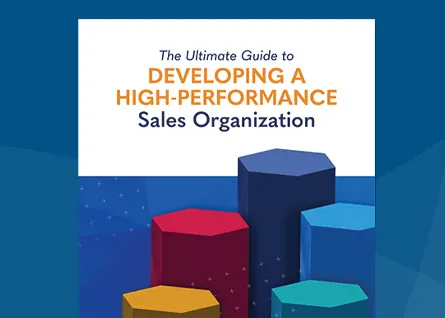Three Sales Pitfalls Startups Should Avoid

Elon Musk once said, “Starting a business is not for everyone. Starting a business – I’d say, number one is to have a high pain threshold.” Starting anything can be painful. Remember when you started riding a bike, a new workout program, or learned a new sport? In the early stages, there can be a few aches and pains. For entrepreneurs, creating a sales approach that is repeatable and scalable can be a painful experience, even for people as smart as Elon Musk. In this article, we will outline three sales pitfalls that entrepreneurs can avoid to scale their revenue and create predictable sales.
Every Customer is a Good Customer
There is a lot of content online about the value of identifying your Ideal Customer Profile (ICP). What is not discussed as often is the Unsuitable Customer Profile (UCP). This is the customer you absolutely do not want to do business with. Figuring out who you want to do business with is important, but knowing who not to do business with can be critical.
At the start-up stage, the two most precious resources are cash and customers. Startups go out of business because they run out of cash. Half the time it’s because they could not get enough of the right customers; the other half of the time it’s because they had too many of the wrong ones. You’re probably thinking, “The customer is always right.” But in the real world, there can be bad customers. Many startups learn this lesson the hard way. Here’s an example.
A software developer is eager to land their first major account. They have a whale in the pipeline, but the new potential client is demanding custom features that are currently not available. In an attempt to please the client, and also to get a use case with a testimonial, the software founder agrees to custom develop to the client’s spec. Now they have this huge client, who is eating up massive resources, is not happy, and is constantly asking for more resources.
If you have never been in this situation, you might think it’s a great problem to have. But if you’ve ever sold an account that was outside your Ideal Customer Profile and lived to regret it, you know the problem is real. In the movie Top Gun, they say, “Never leave your wingman.” What they mean is don’t go flying off chasing random targets. Stay with your wingman so you can win the opportunities that present themselves. The same concept is true with your ICP. Don’t go off chasing every potential customer thinking only of the upside. You end up burning resources that could have been better applied to customers with a better fit. The more focused you are on a specific client, the higher converting your sales team will be. Knowing exactly who is and who’s not a fit allows you to focus on the exact problems you can solve.
Price is Too Low or Discounting Too Fast
The average startup is competing on price and not the value they deliver for their clients. What typically happens is that the startup does research, figures out the price their competitors offer for a similar product, and then prices their product “competitively.” When sellers hyperfocus on price to win business, it can also lower the perceived value to the customer. Having the greatest value for the price is what’s most important. Plus, when you charge just enough to get by, you can’t provide the best customer experience. You can’t hire the best talent to support the product. And you end up selling to the customers that only purchase on price. Basically, you end up working 80 hours a week to make barely enough to keep going. It’s called race to the bottom, and it’s one race you don’t want to win.
When startups sell on value (and stop discounting so quickly), you immediately increase the perceived value to the marketplace. Too often, sales reps don’t have the confidence to maintain a healthy margin, so they fall into the price-matching game. The other benefit of raising or holding your price is that customers will be more invested. When customers pay more, they pay more attention. This gives you the ability to do more for your clients. Without healthy margins, it’s difficult to provide the level of service that customers require. Startups make plenty of mistakes when they are just growing their client base, but being the low-cost provider should not be one of them. How a startup prices their product affects cashflow, which affects every aspect of the business. If you are selling to the right customers, then avoiding selling on price or offering discounts is the second mistake to avoid. Selling value is what should be focused on.
Denying the Complexity of the Sales Process
There’s a belief among startups, that if we offer a great product, the product will sell itself. But in the real world of business, the best product does not always win. If all that was required to succeed in business was a great product, explain why every growing company has a sales team? The ‘product will sell itself’ thinking is a mistake, startup founders want to believe because they have no sales experience.
For example, consider two products that are the same in form and function. Product A has a sales team with little industry experience and a weak sales process while Product B has an established onboarding process for new sales reps and a tight sales process. Product A would be forced to compete on price, while Product B can charge a premium. In business, a buyer’s time is a scarce and valuable resource. The better a sales team can remove hurdles and solve problems, the greater value it presents to the buyer. The sales team that better understands their buyers will outperform other sales teams that are winging it.
Let’s take this concept a step further. Image the sales teams for both companies. Product A sales team comes in every morning and wings it with their prospects. Product B sales team comes in and role-plays every morning for 15 minutes and trains for 15 minutes on key takeaways from yesterday’s sales activities. If you had to pick a company to sell for (the products are the same in fit and function), which sales team would you want to be on? When companies underestimate the complexity of selling, they feel comfortable winging it with their sales approach. Don’t wing it with sales. The more effort you put into an effective sales approach in the beginning, the faster your sales will scale moving forward.
Every startup is going to make mistakes and have growing pains. That’s the nature of all startups. But avoiding these three pitfalls will put you on the right track to sales and business success.

- Account Planning (11)
- Awards (49)
- Client Testimonial (37)
- Personal Branding (19)
- Podcast (11)
- Research (70)
- Sales Career Development (87)
- Sales Coaching (156)
- Sales Consulting (137)
- Sales Culture (170)
- Sales Enablement (354)
- Sales Leadership (109)
- Sales Management (248)
- Sales Negotiation (16)
- Sales Prospecting (125)
- Sales Role-Playing (18)
- Sales Training (235)
- Selling Strategies (263)
- Soft Skills (70)
- Talent Management (94)
- Trusted Advisor (27)
- Virtual Selling (49)
- Webinar (9)


























